You will need the permission of your Lab Instructor to complete the online module as a make up lab. If the make up is not approved, the Lab Handout and any lab assignments will not be graded later in the semester.
Scientific Investigation and Intro to Bean Beetles
Read along in your lab handout/manual with the information on this webpage. Fill in and answer questions accordingly in your lab manual. Your Lab Unit handouts/lab manual will be submitted on Moodle on set dates (see Assignment Schedule) and graded.
Student will turn in all Assignments via Moodle. All assignments are due at the start of lab unless indicated otherwise. Late work will only be graded with prior special permission from your Lab Instructor.Lab Unit handouts can be found at the top of each lab unit page/week. They will be posted week by week.
Lab Unit handouts can be found at the top of each lab unit page/week. They will be posted week by week.
Adaptation for the Online Lab work – short video
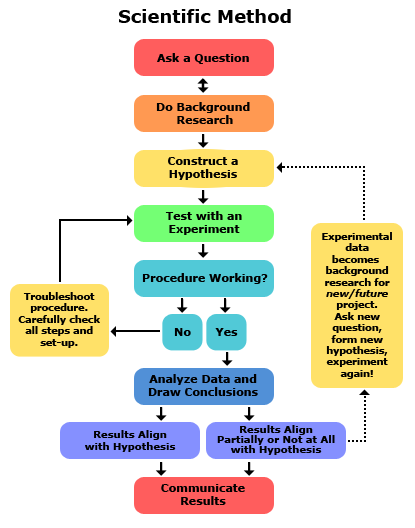
In Summer 2023 – Unit 1 Labs 1, 2 & 3 will be combined within the first 2 lab meetings.
Unit 1: Lab 1 May 18, 2023 (and part of Lab 2 below)
Activity 1: Experimental Design (p. 1)
A good design is key to a successful research project. Be sure your experiments contain:
Test and Control Group(s)
Independent, Dependent and Control/Constant Variables
Replicates
Work through Activity 1 and fill in answers as indicated.
Activity 2: Natal Bean Discrimination by Bean Beetles (p. 2-5) – see provided data
Intro to Bean Beetles (p. 2-3)
What are Bean Beetles? (This is the link mentioned in the lab manual on Page 2)
Natal Bean Discrimination by Bean Beetles (p. 2-5) – use provided data for make up lab
In Lab each pair of students will perform the Natal Bean Beetle Experiment following directions in your lab manual. Each pair of students should then work on graphing their own data combined with the data from the other pair of students. Graphing is a very important skill in science and one you will use in most of the labs in this course. (You can find updated directions for using Excel/Appendix D on Macs on the Resources(opens in new window) page and in Understanding and Representing Data at the back of your Bean Beetle manual and on the recourses page). Your TA will also discuss key aspects of graphing.
If you do not have Excel, NCSU Student can download Microsoft Office 365 from NC State’s OIT(opens in new window) software site) for free. We will use Excel or Google Sheets for graphing. If you use other graphing programs, all key aspects of graphing need to be included in any graph that you turn in for credit.
 | 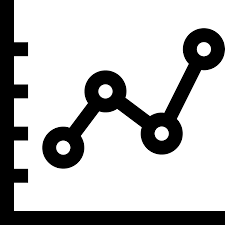 | 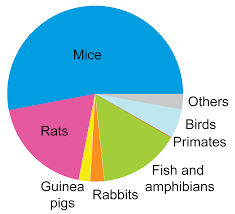 | 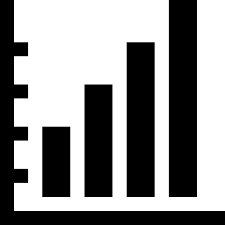 |
Graphing your Bean Beetle Natal Preference Data
Graph the provided data using Microsoft Excel. Appendix D in your lab manual (also found in the Resources section on this website) provides graphing instructions you may find helpful. Also provide written paragraph or 2 rationale for as to why this is the most appropriate type of graph for this data.
This assignment is due in Moodle May 18 – by the end of your regular lab meeting day
Each students will submit their self made graph on Moodle AND explain your rationale for choosing this type of graph to represent your data (for a possible 5 pts).
- Be sure your graph contains the 5 key elements for graphing (also found in the end of the Excel Appendix and key for ALL BIO 181/183 graphs).
- Answer all the questions relating to the Natal Bean Beetle data and other places within the lab unit.
Take Home Assignment: Experimental Design
This assignment is worth 10 points. You can type your answers in a document separate from the many pages of the assignment. Be sure to clearly number each answer. It is due at the start of your lab next week (May 23). Click this box to view and download the assignment.
Activity 3: Introduce semester long Review Paper and Presentation Project
Groups create Google folder and start to brainstorm ideas for the group projects. See details for Project Description in the orange assignment box below in the Unit 1 Week 2 information. Groups will work on this further and get TA approval next week in lab. Your TA will assign you to work in a group by Lab week 2 if you are working online on your own this week.
Unit 1: Lab 2 May 18 & 23, 2023 – Online Module
Activity 1: Critiques of Experimental Design
Now that you are familiar with the basics of designing a sound experiment, we want you to critique an experiment that has been loosely designed. Review the Hypothesis and Design on page 1 and answer the questions in your lab handout/manual this week.
Activity 2: Evaluate Primary Literature
Scientific Literature – How can you tell if an article will be useful for your research project, lab assignments or lab reports?
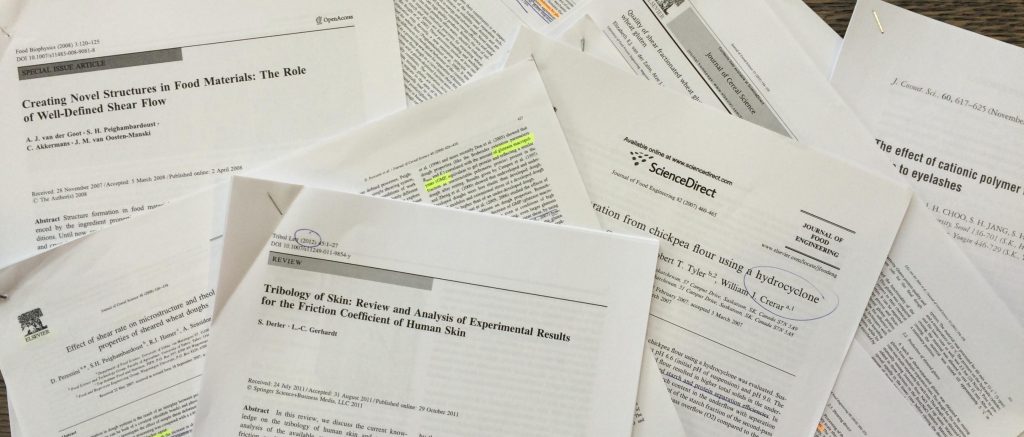
In-Class Primary Literature Assignment – How to Choose Relevant Primary Literature:
Students will need to be able to find and use applicable Primary Literature throughout the BIO 183 labs (and your other Science courses !). This activity will help you learn how best to evaluate Abstracts and determine the best articles for many of our class assignments.
Read the short passage on Page 2 in your lab handout/lab manual – Exposure to Enriched Environments Increases Stem Cell Proliferation in the Brain. After referring to the 4 ABSTRACTS in the articles below (or the paper copies on your lab table), answer the questions 1 & 2 pertaining to these Stem Cell papers. Abstracts are wonderful resources to help you determine the relevance of a research paper.
Full Journal Articles:
How to Find Primary (and Secondary) Literature for your Project – Resources
Library Information – Review the Library Tutorial from BIO 181 if you need a refresher. These will be very important skills in BIO 183 and in your future BIO courses.
- Background for Primary and Secondary Literature
- Search Strategies
- Search Tools
- Citations
- D. H. Hill Library (main campus Brickyard) and Hunt Library (Centennial Campus)
Activity 3: Group Research Project Discussion – at end of the Week 2 Lab
This semester students will work on and write a Group Review Paper (“library” research project) exploring a topic approved by your TA instead of working with Bean Beetles. Each group will need to set up a group Google Drive folder and share this with your TA. All group members should use the shared google drive folder to work on and record ALL information about your project throughout the semester.
During lab this week, each group member should brainstorm ideas for the Group Review Paper and record all ideas on a Google doc before leaving lab. Each person in the group should write their own name and ideas indicating their participation in this group discussion. Your TA will meet with each group at least once helping you develop ideas before leaving lab.
Email your TA if you have not been assigned to a group in your own lab section to work with on this Project. You should work with them online or in person before coming to lab next week if at all possible so that you can be a part of the group assignment and not need to complete the assignment later
Overview and Description of the Group Review Paper Semester Project
Project description and 5 Important Due dates for group work: see details in attached documents and what is due next week below.
*Tips for Writing a Review Paper*– scroll down to see Choosing a Topic, What to Consider, and Structure of Your Review Paper.
Review Paper Structure/Format and Rubric for your paper. This is to help you get started with your proposal with an eye to the Final Paper.
Unit 1: Lab 3 Sept. 12-16, 2022 –Online Module
Presenting Initial Review Paper Proposals with 1 Reference each.
- We will spend a little time in lab sharing our ideas, and providing feedback to one another Feb. 7-11.
- Each group will present their project topic with the group and explain why they chose this pathogen.
- In addition, each student should briefly present the primary journal article they found, title, author(s), how it related to the pathogen and discuss how they may use it in the project.
- Then each group will need to finalize this Initial Proposal for your Review Paper Project to turn by the end of the lab period Feb. 7-11 – see the yellow callout box below).
- The group should turn in 1 copy in Moodle including the names of all group members who contributed. Only 1 assignment per group can be turned in.
- If you are not in lab this week, be sure you ARE working with your group and your work is reflected in the Google Doc. You will need to present the group topic to your TA AND discuss your primary literature reference with your TA as make up on your own – in-person or in zoom before the next lab week in order to be a part of the graded Proposal that is turned in on Moodle.
Each student should plan on working on the project each a few times a week throughout the Spring semester in the shared google drive folder. As you work on the project, you may find that you need to amend your Project Outline/goals. This is fine. Be sure to record all changes and additions in the Google folder. This will document your participation and contributions to this project.
Assignment Details: Group Review Paper Proposal and References due May 25.
The final version of your Group Proposal is due in your Google Folder AND Submitted in Moodle by the end of your regular lab period . Groups should incorporate appropriate group feedback and/or ideas from listening to other group project ideas.
Helpful Resources – also refer to links on the Resources main page
*Tips for Writing a Review Paper* – scroll down to see Choosing a Topic, What to Consider, and Structure of Your Review Paper.
Library Tutorial (from BIO 181 Labs) Explains different types of Literature and how to Search for Primary and Secondary Literature and links to NCSU Library search tools.
Designing experiments – from Labwrite
See the Resources page for help with using and writing CBE/CSE in-text citations and writing References.
- Note the different between (in-text) Citations and References.
- CBE/CSE Handout – an updated handout 8th Edition seen below.
- 8th Edition CSE Scientific Style and Format Citation Quick Guide –new link!
- Scroll down to see different types of reference materials: Journals, Books, Websites and Other Online Materials,
Links for graphing help: (also on the Resources page)
- Lab Manual Appendix D – Using Excel (the same as in the back of your Bean Beetle lab manual)
- Lab Manual Appendix E – Understanding and Representing Data